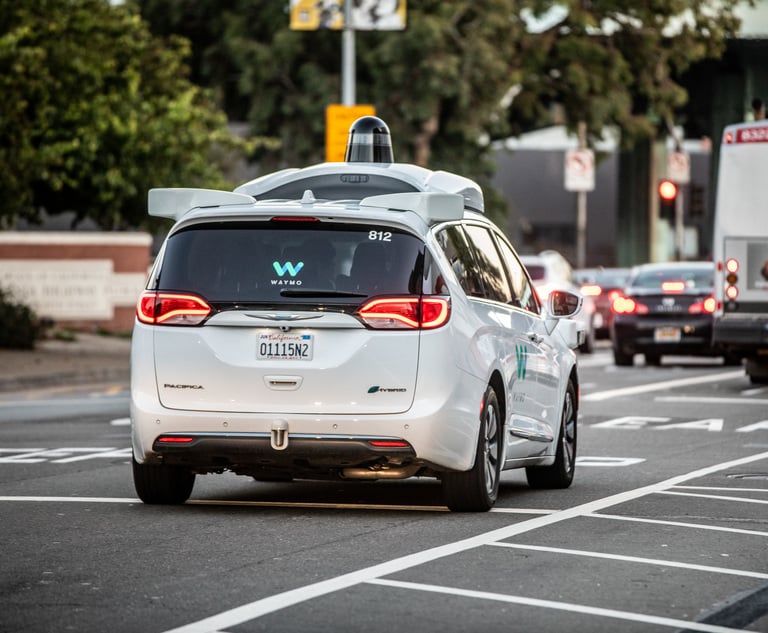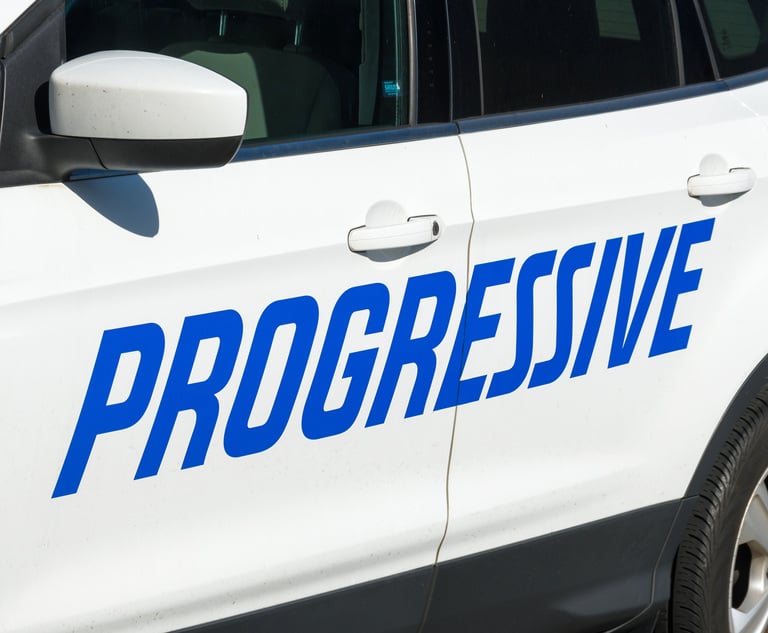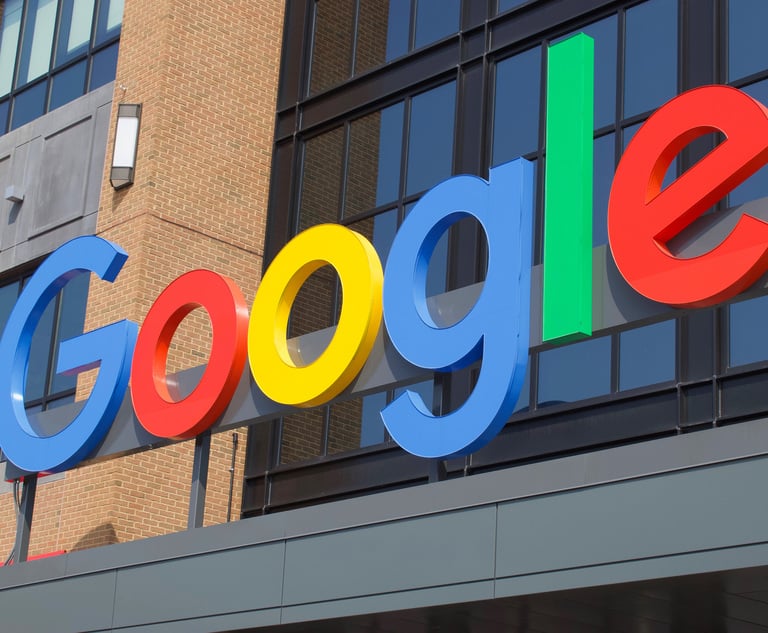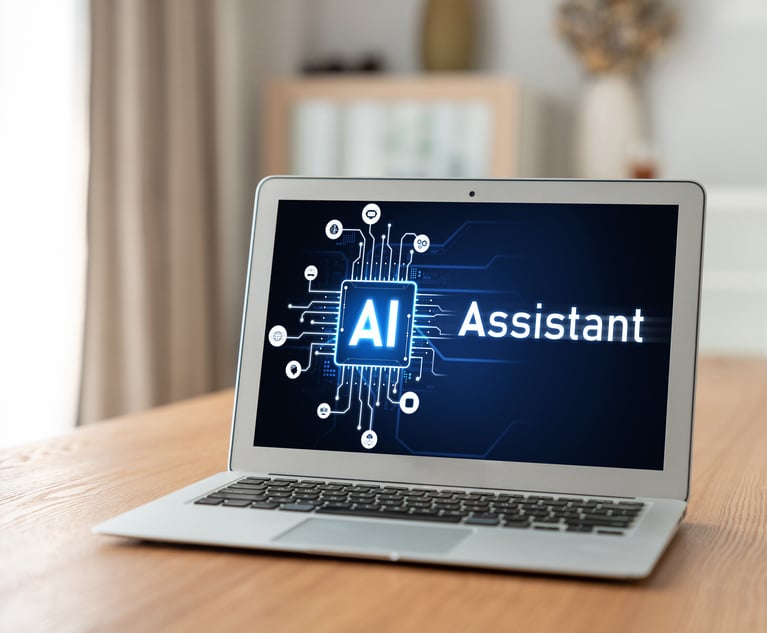Three Keys to Addressing Liability Questions in Autonomous Vehicle Accidents
Autonomous vehicles may save lives, but legal frameworks will need to evolve to effectively foster adoption while compensating accident victims.
May 23, 2018 at 05:16 PM
6 minute read
 From left, Mark Raffman and Charles Cox of Goodwin Procter.
From left, Mark Raffman and Charles Cox of Goodwin Procter. Automobile accidents are caused overwhelmingly by human error: people are distracted; they drive too fast; they tailgate. Even accidents involving prototype self-driving cars typically entail some human error. Ultimately, the development and implementation of self-driving cars is expected to significantly improve road safety. Autonomous vehicles may save lives, but legal frameworks will need to evolve to effectively foster adoption while compensating accident victims.
At this stage in the development of autonomous vehicles, manufacturers face significant litigation risk when vehicles are involved in accidents. Companies rationally want to avoid precedent-setting decisions based on nascent technology. Reputational harm is also a concern. And litigation concerning self-driving automobile technology could include discovery regarding the various sensors and algorithms that help pilot the vehicles, which could potentially expose valuable trade secrets. Concerns of this type may lead manufacturers of autonomous vehicles, in the short run, to avoid litigation when accidents occur.
Ultimately, however, as autonomous vehicles become more prevalent, litigation involving these vehicles will be inevitable even as overall safety improves. Anticipating the trajectory of such litigation, and what conditions might improve outcomes and reduce societal costs, is worth examining.
Although there may be any number of ways to promote efficiency and fairness in addressing liability claims involving autonomous vehicles, three areas may hold promise: (1) evidentiary advances; (2) insurance relationships; and (3) standard-setting.
Evidentiary Advances
For now, evidence in an automobile accident case typically takes the form of testimony from the drivers and witnesses as well as any physical evidence from the scene. One might think that autonomous vehicles would be at a disadvantage in such a setting, since the vehicle itself cannot “testify.” But technology—in the form of vehicle cameras—can level the playing field. A video record of the event can provide the most persuasive evidence of what happened, reducing or eliminating the disadvantage that a manufacturer might otherwise face when confronted by a lawsuit by a sympathetic plaintiff alleging the vehicle caused his or her injuries. Indeed, video evidence from the recent accident in Arizona involving an Uber self-driving vehicle may have played a role in understanding what occurred in that event. Because video evidence can provide an unbiased view of the accident, parties should be able to readily determine liability in many cases. That, in turn, would reduce the transaction costs of contested auto accident lawsuits, permitting insurers to focus on quickly compensating victims, and manufacturers to address any technical issues.
Insurance Relationships
Insurers will play an important role in the adoption of autonomous vehicles. Many expect insurance premiums will fall as autonomous vehicles reduce the number of accidents. Drivers will still require insurance, as will owners of self-driving vehicles, to account for human errors including, for instance, system overrides or failures of maintenance. But manufacturers or companies operating autonomous fleets will need their own liability insurance policies to account for the likelihood that auto accident litigation will include claims that the vehicle itself is at fault. The design of these insurance policies can go a long way to streamlining such litigation. If each manufacturer of each vehicle, component and program were to be insured under separate policies, it is easy to imagine a multiplicity of claims over which policy should bear the cost of any given claim. Conversely, if a single insurance policy covers component manufacturers and others along the supply chain (e.g., as additional insureds), then that could streamline the litigation and allow for the resolution of fault on the supply side to be done cooperatively by experts looking to remedy or improve the product. Personal injury litigation cannot be the preferred forum for determining fault between the various hardware and software components, in cases where the vehicle is shown to be at fault. Properly structured insurance and indemnity relationships should avoid legal friction and foster cooperation to address technical issues. These arrangements will be even more important as additional autonomous features are incorporated into the transportation grid such as communication, routing, and traffic control systems.
Standard-Setting
If autonomous vehicles are to flourish and ultimately improve vehicle safety, standard-setting bodies and regulators will also need to play a role. Whereas most automobile accidents today are considered fortuitous (hence the word “accident”), vehicle casualties in the future may be seen to involve a degree of agency or forethought that is foreign to current litigation. That is, it may be shown that a casualty resulted from a predetermined “choice” made by an algorithm, rather than a driver's spontaneous action under stress. How juries may react to such circumstances introduces a wild card; injuries that have an element of “calculation” may engender jury outrage even where an algorithm may be shown to have limited the potential for even greater damage to others. In this environment, regulatory consideration may yield standards that manufacturers could take into account in designing algorithms, and limit the potential for runaway verdicts when algorithms comply with those standards.
Autonomous vehicles are promising, and they will likely improve overall vehicle safety by limiting or removing human error from most transit. But their adoption will challenge current legal frameworks. As the law develops, dash cameras, insurance arrangements, and regulatory standard-setting can prevent legal friction and allow for transparency and collaboration in the industry to the benefit of all parties.
Mark S. Raffman is a partner at Goodwin Procter. He concentrates his practice on complex products liability and consumer products litigation and advice (including silica, drywall and other building and construction products). He advises on regulatory compliance audits and legislation as well as transactions posing products liability risks.
Charles T. Cox is an associate at the firm. He represents clients in federal court and before the U.S. Patent and Trademark Office on patent and trademark matters in litigation and prosecution.
This content has been archived. It is available through our partners, LexisNexis® and Bloomberg Law.
To view this content, please continue to their sites.
Not a Lexis Subscriber?
Subscribe Now
Not a Bloomberg Law Subscriber?
Subscribe Now
NOT FOR REPRINT
© 2025 ALM Global, LLC, All Rights Reserved. Request academic re-use from www.copyright.com. All other uses, submit a request to [email protected]. For more information visit Asset & Logo Licensing.
You Might Like
View All


Google Slapped With Digital Privacy Class Action Over Use of Customer Service AI Product

AI Tools Creating Digital Paper Trails That Could Haunt Companies in Court
Trending Stories
- 1New York-Based Skadden Team Joins White & Case Group in Mexico City for Citigroup Demerger
- 2No Two Wildfires Alike: Lawyers Take Different Legal Strategies in California
- 3Poop-Themed Dog Toy OK as Parody, but Still Tarnished Jack Daniel’s Brand, Court Says
- 4Meet the New President of NY's Association of Trial Court Jurists
- 5Lawyers' Phones Are Ringing: What Should Employers Do If ICE Raids Their Business?
Who Got The Work
J. Brugh Lower of Gibbons has entered an appearance for industrial equipment supplier Devco Corporation in a pending trademark infringement lawsuit. The suit, accusing the defendant of selling knock-off Graco products, was filed Dec. 18 in New Jersey District Court by Rivkin Radler on behalf of Graco Inc. and Graco Minnesota. The case, assigned to U.S. District Judge Zahid N. Quraishi, is 3:24-cv-11294, Graco Inc. et al v. Devco Corporation.
Who Got The Work
Rebecca Maller-Stein and Kent A. Yalowitz of Arnold & Porter Kaye Scholer have entered their appearances for Hanaco Venture Capital and its executives, Lior Prosor and David Frankel, in a pending securities lawsuit. The action, filed on Dec. 24 in New York Southern District Court by Zell, Aron & Co. on behalf of Goldeneye Advisors, accuses the defendants of negligently and fraudulently managing the plaintiff's $1 million investment. The case, assigned to U.S. District Judge Vernon S. Broderick, is 1:24-cv-09918, Goldeneye Advisors, LLC v. Hanaco Venture Capital, Ltd. et al.
Who Got The Work
Attorneys from A&O Shearman has stepped in as defense counsel for Toronto-Dominion Bank and other defendants in a pending securities class action. The suit, filed Dec. 11 in New York Southern District Court by Bleichmar Fonti & Auld, accuses the defendants of concealing the bank's 'pervasive' deficiencies in regards to its compliance with the Bank Secrecy Act and the quality of its anti-money laundering controls. The case, assigned to U.S. District Judge Arun Subramanian, is 1:24-cv-09445, Gonzalez v. The Toronto-Dominion Bank et al.
Who Got The Work
Crown Castle International, a Pennsylvania company providing shared communications infrastructure, has turned to Luke D. Wolf of Gordon Rees Scully Mansukhani to fend off a pending breach-of-contract lawsuit. The court action, filed Nov. 25 in Michigan Eastern District Court by Hooper Hathaway PC on behalf of The Town Residences LLC, accuses Crown Castle of failing to transfer approximately $30,000 in utility payments from T-Mobile in breach of a roof-top lease and assignment agreement. The case, assigned to U.S. District Judge Susan K. Declercq, is 2:24-cv-13131, The Town Residences LLC v. T-Mobile US, Inc. et al.
Who Got The Work
Wilfred P. Coronato and Daniel M. Schwartz of McCarter & English have stepped in as defense counsel to Electrolux Home Products Inc. in a pending product liability lawsuit. The court action, filed Nov. 26 in New York Eastern District Court by Poulos Lopiccolo PC and Nagel Rice LLP on behalf of David Stern, alleges that the defendant's refrigerators’ drawers and shelving repeatedly break and fall apart within months after purchase. The case, assigned to U.S. District Judge Joan M. Azrack, is 2:24-cv-08204, Stern v. Electrolux Home Products, Inc.
Featured Firms
Law Offices of Gary Martin Hays & Associates, P.C.
(470) 294-1674
Law Offices of Mark E. Salomone
(857) 444-6468
Smith & Hassler
(713) 739-1250






